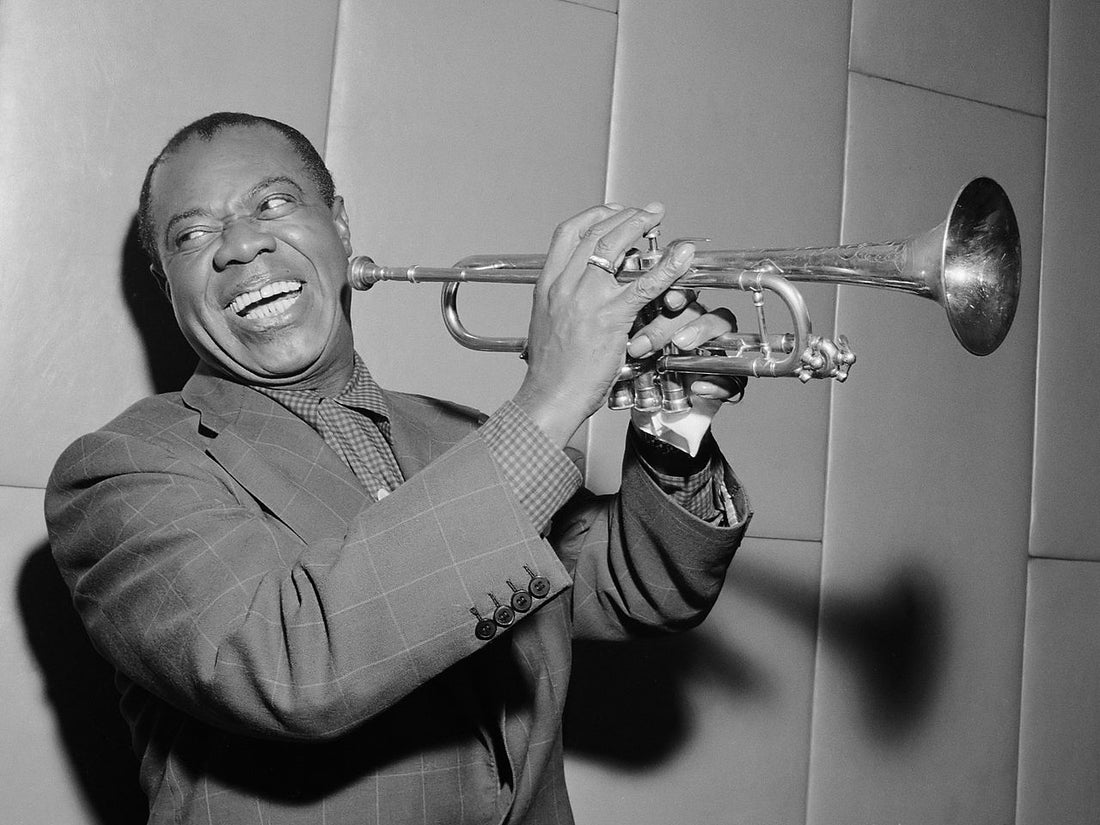Louis Armstrong

Louis Armstrong was born in 1901 in New Orleans. Coming from an underprivileged background, he had a difficult childhood and dropped out of school very early to go singing in the streets and earn some money. Sent to a reformatory for minor offences, he joined the institution's orchestra and decided to become a professional musician when he left.
From 1919 onwards, he played regularly in dance clubs and on wheeled boats, which allowed him to develop a unique sense of the stage and the ability to play a wide range of styles. There he met cornetist Joe King Olivier, who saw his potential, took him under his wing and invited him to join his Creole Jazz Band in Chicago in 1922. He then spent a year in New York to join the Fletcher Henderson's Orchestra, with whom he recorded several albums. Armstrong was already known for his energetic solos and collaborated with great artists such as Sidney Bechet and Bessie Smith.
His career took a real turning point in 1925, when he formed his own group, the Hot Five. In the space of three years, he recorded more than 60 records, now considered the most important in the history of jazz. It was during this period that he popularised scat, a series of onomatopoeia sung in rhythm instead of lyrics.
Armstrong then collaborated with pianist Earl Hines (with whom he recorded West End Blues, a major work in his repertoire), then with small groups and large ensembles. He also performed in a Broadway musical (Ain't Misbehavin') and in several musical films. His talent, charisma and singular voice make him an international star.
He will continue the concerts and recordings until the end of his life, in 1971, accompanied by his Balanced trumpet which he called "my sweet little Selmer".
Photo credits: Germaine Martin - Herbert Behrens / Anefo
